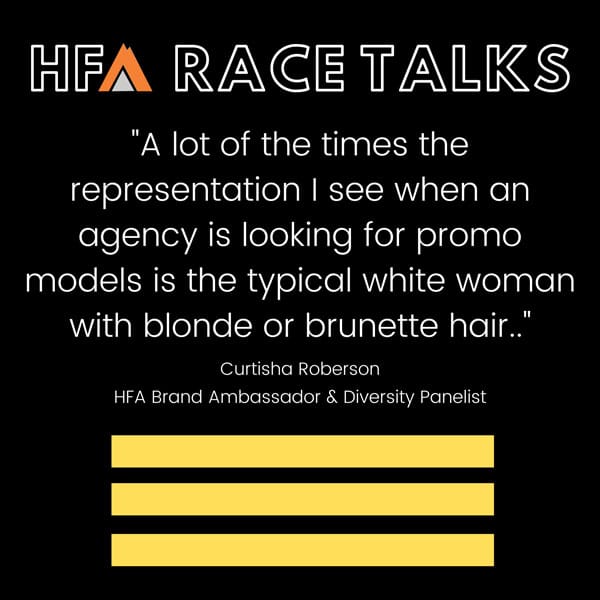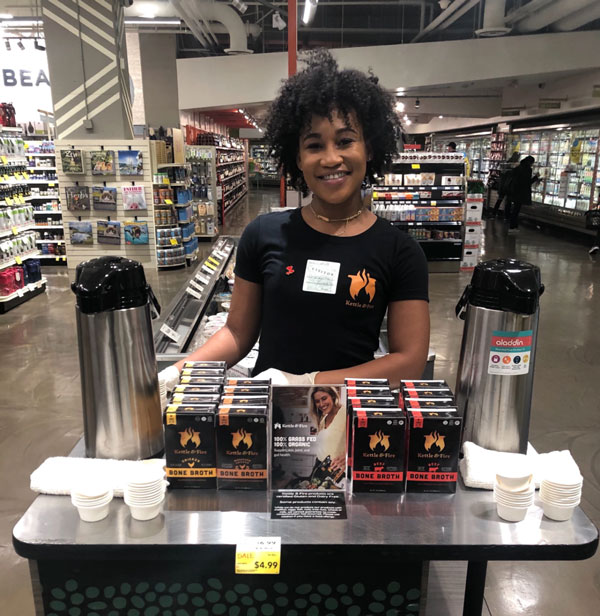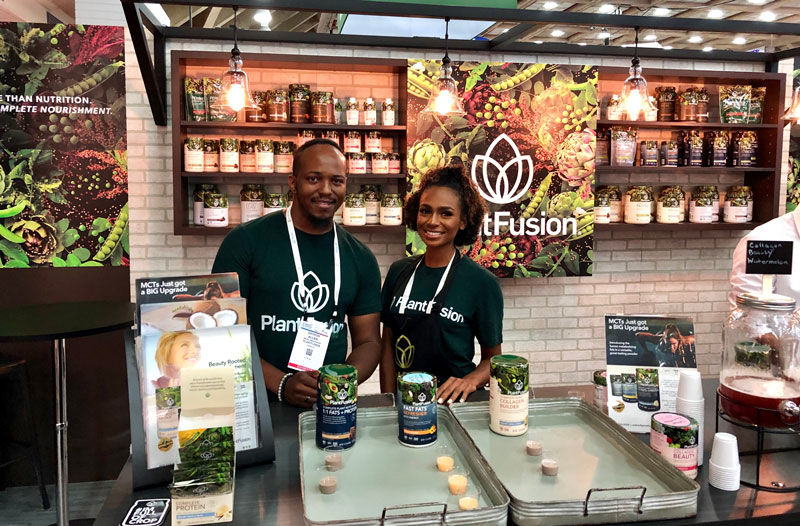If you’re in the experiential marketing industry, be ready. This blog is going to “go there.”
In an effort to continue the conversation on racial equality, we put our own industry, experiential marketing, under the microscope. In our first-ever diversity panel, we asked 5 panelists to share their experiences with racial discrimination in the field marketing space. Where have they seen racism penetrate the industry? How does it impact them as individuals? What can we do to eradicate racism in our industry?
The conversation was…let’s say…passion-filled. It was a good reminder that while racism is pervasive and affects all people of color in the US, an individual’s experience differs greatly based on their outlook, location and gender.
But there were several themes the panelists agreed were key issues in the industry. I’m going to talk through them below, in no particular order.
First, a non-inclusive definition of beauty exists in many areas of our industry. Phrases like “All-American” and “The Girl Next Door” are, more often than not, code words for Caucasian with blonde or brown hair. One of our panelists from San Diego explained that she sees an overwhelmingly blonde-hair/blue-eyed demographic hired for beach-centric programming.

On a related note, the topic of hair was frequently addressed. The women on the panel explained that at events, it is common for strangers, both BAs and consumers, to uninvitedly invade their personal space and touch their hair. As a self-proclaimed touch-me-not, I have a hard time imagining this. It took a moment for me to absorb that they weren’t joking. It happens all the time…in real life. What?!?! Given the history of unwanted touch with respect to black Americans’ origins in the US, it’s easy see how something that might seem innocent to the offender could strike a nerve with the person being touched.

Also, common requests for certain hairstyles – buns, side braids, straightened hair, etc, are sometimes not possible for black women who wear their hair naturally. So, that leaves them with the choice to spend hours straightening their hair or risk losing the position. I can honestly say this is something I’d never thought about before. While perhaps not intentional, this styling requirement creates a racial bias that negatively impacts black women.
Some panelists said they have not seen direct racism in the field, however, most did acknowledge that many agencies hire and feature almost exclusively Caucasian staff, and when featuring people of color, the selected staff are often light-skinned. When asked how to resolve this issue, the primary answer was to double-check your hiring preferences and include people of color in the interview process. Don’t focus on filling quotas, but instead make sure you select the best candidate, without racial prejudice. While it seems rather intuitive, can you imagine if this was practiced industry-wide?
Lastly, how else can agencies be an active partner in the fight for racial equality? One great suggestion was to explicitly state our stand on racism. We just won’t tolerate it and will be adding it to communication to clients, BAs and our internal team.
I am so grateful these 5 panelists shared their time and thoughts with us. Now it’s time to take this information and act on it!
So, what are we going to do?
We will START:
1. Adding communication regarding our intolerance for racism (or any other discrimination) in our new hire paperwork and client contracts.
2. Including a note in all pre-event instructions requesting that our brand ambassadors make the on-call manager aware of any issues of racism they experience in the field.
3. Addressing/acknowledging issues of racism directly with clients (which we already do) and also with other brand ambassadors who witnessed a racist action (which we did not previously do).
4. Adding our core values and our stand on inclusion in all of our training decks.
5. Adding one book/year to our HFA reading list. This will be required reading for all internal staff members and we will dedicate a full team call to discussing how the key learnings can be applied to us as individuals and as a company.
We will STOP:
1. Dictating how brand ambassadors should wear their hair, but instead will provide an option of branded hat, hairnet or other head covering that will comply with health regulations, while allowing flexibility for a brand ambassador who may have their hair styled in a non-hat friendly kind of way.

We will CONTINUE to:
1. Hire staff of all colors.
2. Ensure pay is equal across racial lines. Pay may vary by market, but not by race.
3. Feature people of all colors on social media, website and marketing materials.
4. Hold our clients accountable for racist staffing requests or comments.
5. Engage in difficult conversations about racial inequality and how we can help build a better tomorrow for people of color.
We know this is an ongoing journey, but we are glad to be on the road toward equality. Whether you are a BA, agency or client, know that you too can take actionable steps to join the fight. The question is, will you?
I’d like to formally thank our panelists below, who are on the front line of the fight for equality. These 5 people generously shared their time, experiences and insights with us:
· Martinique Lewis
· Azantia Limón
· Curtisha Roberson
· Corey Middleton
· Jeffrey Cheuk




